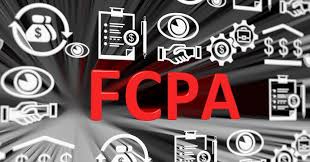DOJ Puts its New Stamp on FCPA Settlements: Unraveling the Glencore FCPA Settlement (Part II of V)

The Justice Department has been promising a new, more aggressive approach to FCPA enforcement. DOJ officials have made statements to that effect on numerous occasions. The Biden Administration touted its elevation of the battle against corruption as a national security issue and it issued its Strategy Against Corruption, which included numerous promises, initiatives and proposed policy changes.
Along with these events, DOJ has repeatedly touted its new and aggressive approach to white collar crime enforcement, extending such statements to export control and sanctions violations. For a while, all was quiet.
DOJ’s silence was broken by the Stericycle FCPA enforcement action, which evidenced initial steps by DOJ toward a more aggressive approach, i.e., the appointment of an independent compliance monitor in circumstances that under prior Administrations might not have occurred. After the Stericycle FCPA enforcement action, DOJ officials promised even more initiatives, including the requirement for CEO, CFO and CCO compliance certifications as part of an FCPA resolution.
The Glencore FCPA settlement reflects yet another step toward DOJ’s new aggressive approach. Whether this is the final resting place for FCPA enforcement, it is hard to tell. We shall have to wait and see.

DOJ’s resolution with Glencore includes additional requirements, including CEO, CFO and CCO certifications, along with some other refinements or improvements designed to promote DOJ’s specific message surrounding the importance of remediation of ethics and compliance programs, credit for remediation, and overall compliance expectations.
To provide a meaningful comparison of comparable settlements, I reviewed the 2020 Goldman Sachs 1 MDB resolution to the Glencore settlement to identify any substantive changes in approach. Of course, I recognize that such a comparison may not be entirely accurate since both cases present differing circumstances, some relevant issues stand out. Here is a table highlighting some of the different approaches:
| Element | Goldman Sachs Settlement (2020) | Glencore Settlement (2022) |
| Fine Amount | $2.3 Billion | $1.1 Billion |
| Guilty Plea v. DPA | DPA & Subsidiary Guilty Plea | Guilty Plea |
| Compliance Monitor | No | Yes — 3 Year Term |
| Discount | 10 Percent | 15 percent |
| Attachment C Compliance | Yes | Yes |
| Compliance Remediation Credit | Yes | Yes (with new factors listed) |
| CEO & CFO Certification | No | Yes |
| CEO & CCO Certification | No | Yes |
The comparison above identifies four significant differences in approach by the new, aggressive DOJ enforcement scheme:

First, in both cases resolved this year (Stericycle and Glencore), DOJ has imposed independent compliance monitors. There was no excuse for DOJ’s failure to do so in the Goldman Sachs case, and the new DOJ approach has resulted in appointment of an independent compliance monitor in two significant cases — Stericycle and Glencore.
Second, DOJ cited several interesting factors when crediting Glencore’s compliance remediation efforts, including (a) Glencore’s implementation of a centralized compliance function, hiring of a Chief Compliance Officer, and significantly increasing the compliance staff; (b) enhancing its business partner management, reducing number of third-party representatives, adopting payment controls and post-engagement monitoring controls; and (c) investing in increased compliance headcount and data analytics.
Third, DOJ included a specific form requiring CEO and CFO certifications that Glencore has complied with all disclosure obligations under its plea agreement.

Fourth, DOJ is requiring both the CEO and CCO to certify at the end of the term of the Compliance Monitor that Glencore has implemented an ethics and compliance program consistent with the specific requirements mandated in the plea agreement in Attachment C.
Both certifications raise significant questions about potential liability for the executives if Glencore fails to disclose all conduct required under the plea agreement and to institute an ethics and compliance reasonably designed to detect and prevent future violations. The form certifications contain language confirming that such statements if false would be prosecutable under the False Statement statute, 18 USC §1001, and for obstruction of justice under 18 USC §1519.
















1 Response
[…] Source link […]